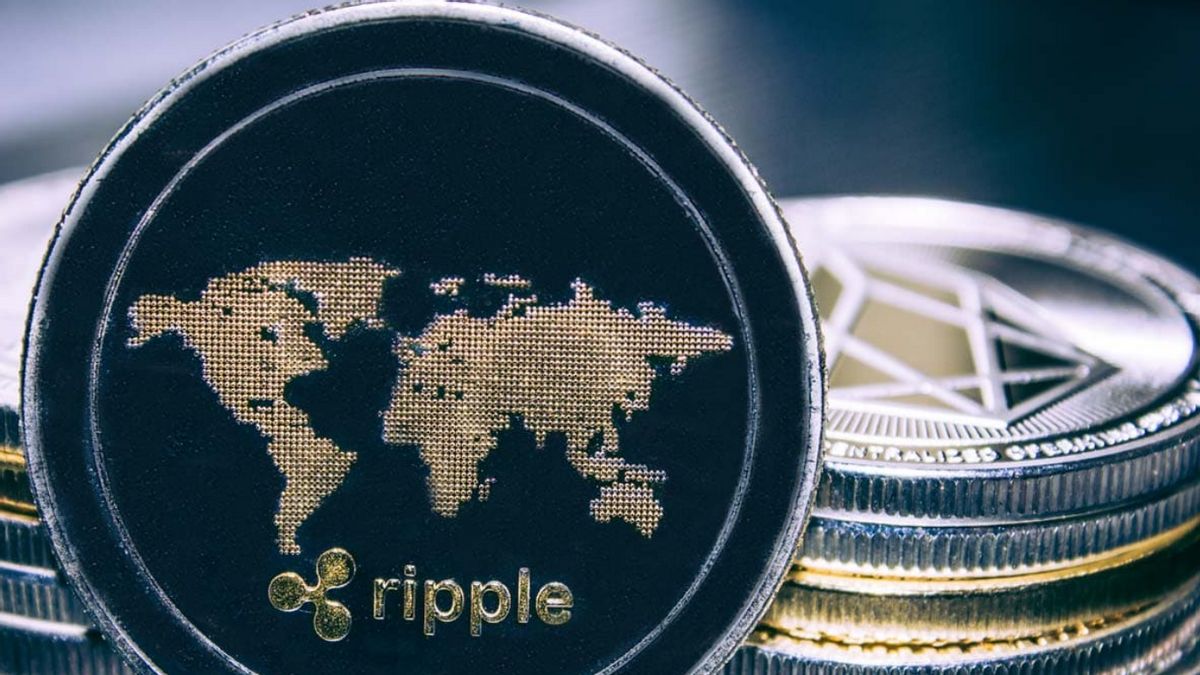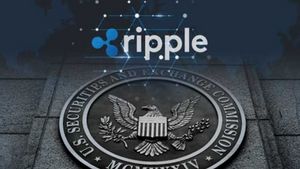JAKARTA - Ripple, a blockchain technology company that develops cross-border payment protocols, is still facing a lawsuit from the United States Securities and Exchange Commission (SEC). This lawsuit concerns the status of XRP, a crypto asset created by Ripple, as a securities or not.
The lawsuit has been ongoing since December 2020, when the SEC accused Ripple of illegally selling XRP without registering it as a securities. The SEC claims that XRP is an investment contract, meaning that its buyers hope to benefit from Ripple's venture.
Ripple denies the allegations, saying that XRP is a digital currency, not a security. Ripple also claims that the SEC does not provide sufficient legal clarity on XRP status, and that this lawsuit is detrimental to thousands of investors, developers, and businesses that use XRP.
This lawsuit has gone through various stages of legal proceedings, including filing lawsuits, answers, defenses, and revisions. The revised stage is a stage where both parties must provide mutual evidence and documents relevant to the case.
Recently, this lawsuit entered an important stage, when Judge total Sarah Netburn approved a motion from the SEC ordering Ripple to provide certain financial and contract documents related to XRP's institutional sale. The SEC wants this document to prove that Ripple sold XRP as a security, and did not provide adequate information to its buyers.
Ripple had to comply with the request, as it was part of the revised stage. However, a number of legal experts expect Ripple to appeal to the Second Circuit Court once the filing for repairs is complete. This appeal will extend the legal process, and it may take months or even years.
SEE ALSO:
SEC And Ripple Disagree On Retail And Unstitutional XRP Sales
One of the difference points between the SEC and Ripple is about selling XRP on the exchange. The SEC considers that all XRP sales, both done by Ripple and by third parties, are securities transactions that must comply with SEC rules and regulations.
Ripple, on the other hand, distinguishes between institutional and retail XRP sales. Institutional XRP sales are sales made by Ripple to large investors, such as banks, companies, or financial institutions. Retail XRP sales are sales made by third parties, such as exchanges, brokers, or traders, to small investors, such as individuals or households.
Ripple is willing to resolve this issue with the SEC. On the other hand, Ripple rejected allegations about selling XRP in retail as a securities transaction, claiming that this was outside the SEC jurisdiction.
Ripple received support from the Judge of the United States District Court Analysis Torres, which in its July 2023 ruling stated that XRP sales on the exchange were not securities transactions. This ruling is based on the analysis of Howey Test, a legal criterion used to determine whether an asset is a security or not.
However, this ruling does not end the lawsuit, as the court also ruled that the sale of institutional XRPs is an illegal securities transaction, a fact that is now recognized as part of the repair process. Therefore, neither the SEC nor Ripple still want a comprehensive victory, for various reasons.
The SEC, from its side, may not want to admit that the primary sale of XRP on the exchange is not a securities transaction. This is because the SEC uses this argument as the basis for other lawsuits against crypto service providers, such as Coinbase and Binance. Therefore, admitting to Ripple will weaken the SEC's position in those cases.
Ripple, on the other hand, does not want to give up on the SEC's lawsuit regarding the sale of XRP to institutions that are considered illegal securities transactions. This is because Ripple hopes to continue its business as a cross-border payment solution provider, which relies on selling XRP to institutional partners.
By considering this, the XRP community may have to be patient waiting until this feud really ends. Because this legal process takes a long time, and the results are unpredictable.
The English, Chinese, Japanese, Arabic, and French versions are automatically generated by the AI. So there may still be inaccuracies in translating, please always see Indonesian as our main language. (system supported by DigitalSiber.id)
















